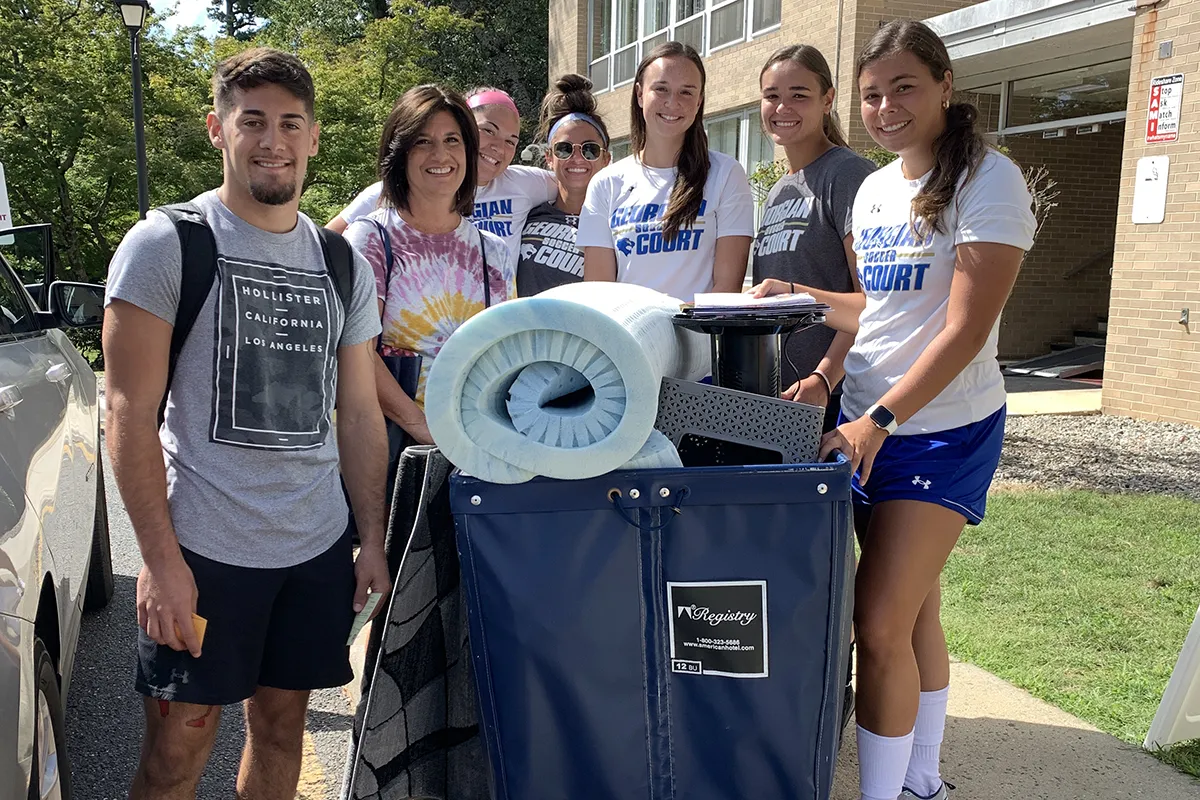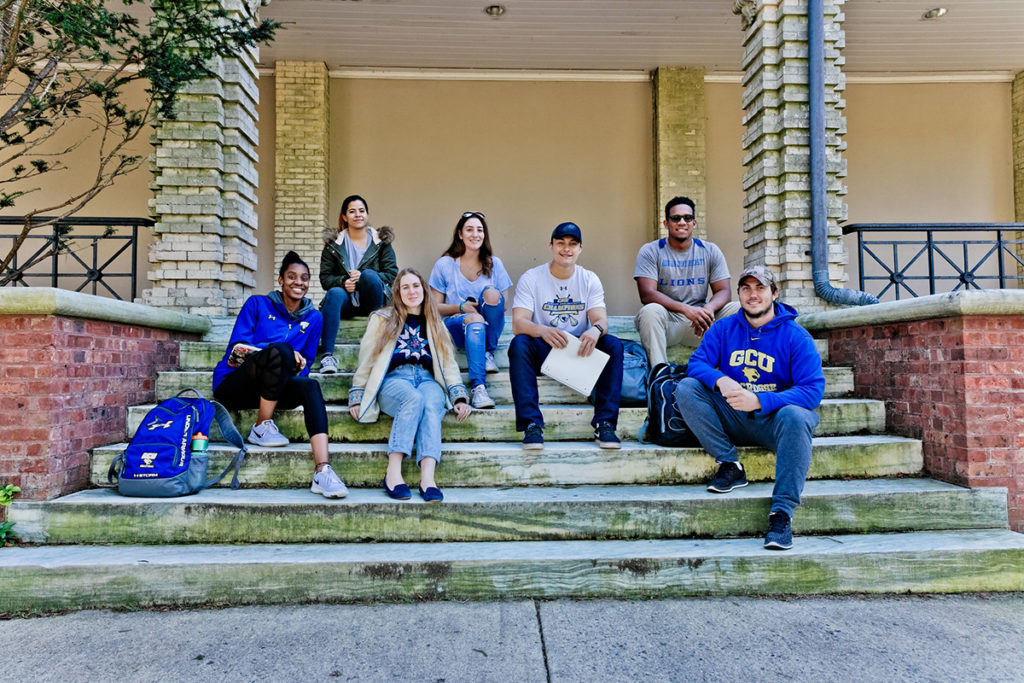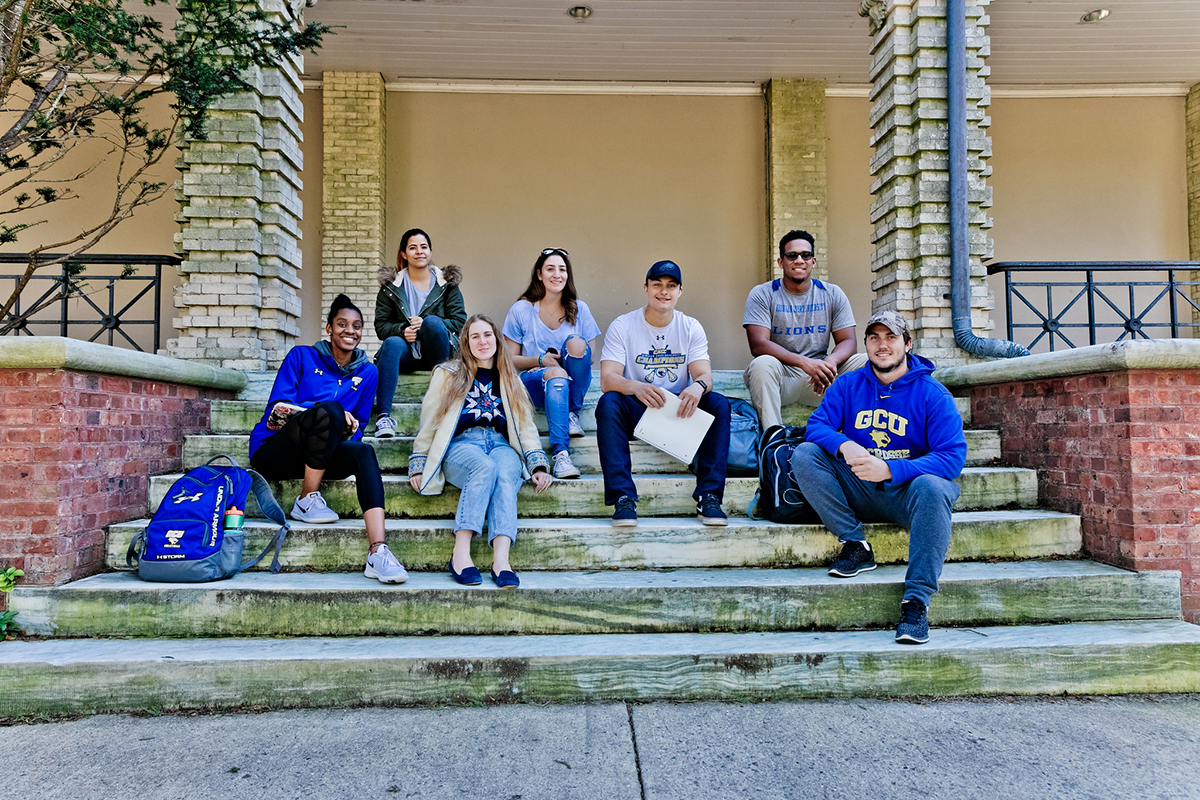Packing for college? Don’t forget your mental health!
Starting college for the first time is a wonderful, exciting experience, however, big life changes can be stressful for new students and can trigger or exacerbate mental health issues. Whether it is being away from home for the first time, managing college schedules, or trying to find their “new” identity, it can take time to adjust.
Dr. Robin Solbach, Psy.D., Director of Health and Counseling at Georgian Court University, has tips for new college students and their families to help ease the transition to college and support stronger mental and physical health.
“The best thing a college student can do when they start to notice they’re overwhelmed is to reach out early—to friends, supportive family members, and to the professional resources at the university they’re attending,” explained Dr. Solbach. “It’s easier to address an issue when it’s small rather than waiting for the issue to magically go away on its own—only to find the little issue becomes a huge problem later.”
According to the American College Health Association (ACHA), some of the most common mental health issues faced by college students include anxiety or depression related disorders, attention-deficit/hyperactivity and related disorders, post-traumatic stress disorder, and obsessive-compulsive disorder.
Here are five tips from Dr. Solbach for first-time students to help them navigate mental health challenges and ease the transition to “college life”:
- Make a schedule for yourself and stick to it.
Many students don’t take the hours needed to study and complete coursework into account when building their schedules, so they often find themselves sacrificing sleep and personal care to keep up with their busy schedules.
“Remember to budget 3 hours of study time outside of class for every hour you spend in class, so if you have 12 hours of class time a week that is equivalent to 36 hours per week of study time.” Dr. Solbach added, “It is important to budget at least 7 hours of sleep every single night.”
- Get to know your advisor.
Colleges and universities provide advisors for a reason – they are there to help! Advisors can help students organize and build healthy schedules and get students into contact with needed resources around campus.
- Connect: Join one club or activity.
Getting involved in a club or social activity can help students find connections and surround themselves with support and like-minded people. “College students can actively choose what groups they associate with and can seek out clubs, activities, and friends whose lifestyles and life choices are aligned with who they themselves want to become. Campus student life/student activities associations can be great places to build social connections,” explained Dr. Solbach.
- Learn about campus resources.
Colleges and universities have numerous free resources and can also provide referrals to external resources to help students succeed. “There are academic tutoring resources, peer supports, residence life professionals, health services and counseling services, to name a few, that offer support that’s geared to helping students succeed within their particular institution,” said Solbach.
- Pay attention to what your body is telling you and don’t ignore early signs of struggles.
Changes in sleep, appetite, energy, concentration, mood, and general well-being are good indicators of high stress levels. A drop in grades or the ability to complete assignments are also cues that something might be going on. Any changes in physical health should be noted and addressed early. “Asking for help early means being honest with oneself that things aren’t going well,” remarked Dr. Solbach. “Once a person is honest with themselves, it makes it much easier to be honest with trusted loved ones and professionals to get the support they deserve.”
Students aren’t the only ones who can be stressed during this transition to college. Parents of first-time college students may also face challenges when their child leaves home. “It’s often a huge shift for a parent from having their high school student under their roof, being able to set rules such as curfews, and having access to all the student’s academic and medical records, and knowing their child’s comings and goings,” said Dr. Solbach. “College means that caretakers no longer have all (or any) of that level of control.”
Here are some tips for worried parents
- Talk about it now.
Have conversations about how you and your child will communicate when they are away at college. Once an individual is 18, they have the choice to share or not share vital information such as medical records, grades, and problems. “When will a student tell their parent that they flunked a class? When will a parent learn that their student has been prescribed a medication? The answer is different for each situation, and parents can help their children by having discussions about what will be helpful—both for the caretakers and for the children—before the children go away to college,” said Dr. Solbach.
- Mistakes are part of life.
Parents should remind themselves that their children will make mistakes – and that’s OK. When leaving home and being exposed to a high level of freedom for the first time, it’s common for first-time students to make mistakes. Whether it’s getting into trouble or forgetting to study for an exam, accidents happen. “The best way for (adult) children to learn is to make those mistakes, and then manage the consequences of those mistakes on their own. Managing consequences includes reaching out to caretakers for help, but it may also include the student trying to figure it out on their own, by using the resources available at the university,” explained Solbach.
- Listen without judgment.
Asking questions like, “How have you tried to address this?” or “Is there anybody on campus who can help?” or “What can I do to help?” might be a useful way to keep the communication lines open while supporting the student. “Parents can share their concerns with school professionals, keeping in mind that the professionals will likely not be allowed to disclose any information to the caretaker unless the student has given permission.” Dr. Solbach added, “It is important to respect students’ privacy and respect their decisions as they grow into adulthood.”
How do you know if a student is having mental health issues? According to Dr. Solbach, it is important for students and parents alike to understand what symptoms of declining mental health can look like, but warns that mental illness can present differently in each individual. Some signs of the most common issues include: worry that doesn’t go away, panic attacks, rumination, sleep disturbances, depressed mood, low energy, social isolation, and not taking care of one’s personal hygiene.
Dr. Solbach urges all students, regardless of age, to prioritize their mental health and look out for their peers as they head back to campus this fall.
“It is crucial for students to be in-tune with their bodies and to watch out for any symptoms of declining mental health,” stated Dr. Solbach. “By staying on top of mental health, students and parents can help ensure a smooth transition into this new world of college life.”
Attention GCU Students: The GCU Counseling Center is located in room 218 on the second floor of the Casino and is open from 8:30 a.m. to 5:30 p.m. Monday through Friday. Appointments can be made in person, via phone at (732) 987-2680, or by email at counselingcenter@georgian.edu.















